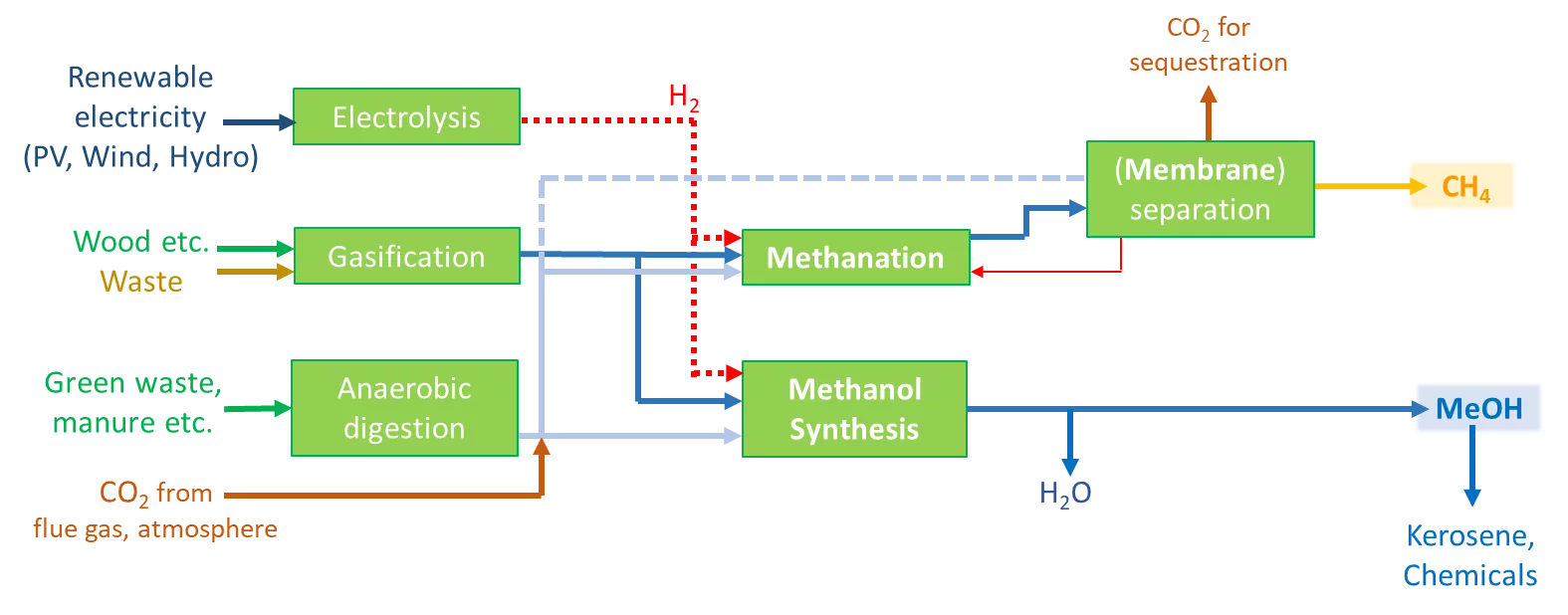Conversion of renewable gases for energetic use
Since 2000, the Thermochemical Processes (TCP) group has been focusing its activities on the conversion of (waste) biomass via gasification either into 2nd generation bio-fuels (synthetic natural gas SNG) or to electricity via high temperature fuel cells, gas turbines and gas engines. Since 2015, the conversion of biogas from anaerobic digestion and the production of renewable methane in Power-to-Gas applications is in the focus of the group. Meanwhile, also sorption enhanced methanol synthesis using fluidised bed reactors is investigated.
System integration of gasification/digestion, gas processing and the final conversion process is one key for a successful implementation of such technologies in the market. Techno-economic analyses for new technologies are therefore helpful to understand in which directions technology development has to go. The following unit operations are important:
- Treatment and/or removal of sulphur species
- Treatment and/or removal of hydrocarbons, especially terpenes and aromatics
- Removal of particles and metal compounds in gas streams
- Methanation, methanol synthesis, water gas shift, reforming and hydrogenolysis of hydrocarbons
- Gas upgrading by membranes.
In all our research projects, a system engineering approach are used. Material and process unit developments are driven by specific process chain in mind.
